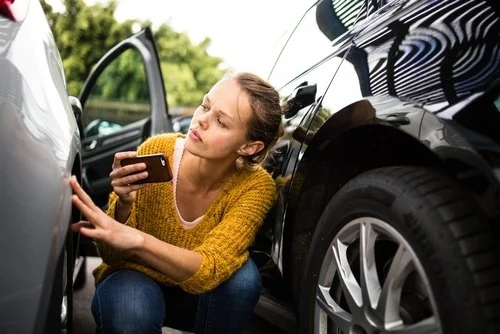
- 1 - What Is Car Rental Insurance?
- 2 - Types of Car Rental Insurance
- 3 - Do You Really Need Car Rental Insurance?
- 4 - Alternatives to Renting Insurance
- 5 - How to Choose the Best Car Rental Insurance
1 - What Is Car Rental Insurance?
Car rental insurance is a policy that provides financial protection against damage or theft when renting a vehicle. It helps cover repair costs, accidents, or loss of the vehicle while you’re driving it. Rental companies typically offer various types of insurance coverage, but understanding the specifics can be tricky. It’s important to know exactly what is included, as this can help you decide whether you need to purchase additional coverage or if your personal insurance can offer sufficient protection.
2 - Types of Car Rental Insurance
When renting a car, there are several types of insurance coverage you might encounter. Here are the most common options:
1. Collision Damage Waiver (CDW)
The Collision Damage Waiver (CDW) is one of the most common types of coverage offered by car rental companies. This type of insurance waives your financial responsibility if the rental car is damaged in an accident. However, it's important to note that CDW doesn’t typically cover theft or personal injury.
2. Loss Damage Waiver (LDW)
Similar to the CDW, the Loss Damage Waiver (LDW) also covers damages to the rental car. However, it provides more comprehensive coverage, including protection against theft. With LDW, you typically won’t have to pay for repairs if the car is damaged or stolen.
3. Liability Insurance
Liability insurance covers any damage you cause to other vehicles or property in an accident. This type of insurance is required in most states, but it’s essential to check with your rental company to see if it’s already included in your rental agreement.
4. Personal Accident Insurance (PAI)
Personal Accident Insurance provides coverage for medical expenses in case of an accident while driving the rental vehicle. It may also cover medical bills for passengers. This is an optional type of coverage but may be worth considering, especially if your personal health insurance doesn't cover injuries incurred during a car accident.
5. Personal Effects Coverage (PEC)
Personal Effects Coverage protects your belongings if they are stolen from the rental car. This can be particularly useful if you're traveling with valuable items like electronics, luggage, or documents.
3 - Do You Really Need Car Rental Insurance?
One of the most frequently asked questions when renting a car is whether or not you need to purchase the offered insurance. The answer depends on several factors:
1. Your Existing Car Insurance
Many people already have car insurance that covers rental cars. Check your personal car insurance policy to see if it extends to rentals. If it does, you may not need to purchase additional coverage from the rental company. However, you should also verify whether your insurance covers things like damage, theft, or liability.
2. Your Credit Card Benefits
Some credit cards offer rental car insurance as a benefit if you use the card to pay for the rental. Before declining the rental company’s insurance, check with your credit card provider to confirm the specifics of the coverage and the conditions it may have.
3. Rental Car Insurance Costs
The cost of renting car insurance can add up quickly. Typically, the daily rate for insurance coverage can be as high as $30 or more, depending on the type of coverage. If you already have personal or credit card coverage, purchasing additional insurance may not be necessary and can save you money.
4. The Risk of Renting in Specific Locations
If you’re renting a car in a location with high traffic, extreme weather conditions, or unfamiliar roads, it might be a good idea to purchase additional coverage. This ensures that you're protected in case of accidents or unforeseen circumstances.
4 - Alternatives to Renting Insurance
If you’re hesitant about paying for rental car insurance, there are alternatives you can consider:
1. Use Your Personal Car Insurance
As mentioned earlier, your personal car insurance might cover rental vehicles. If it does, this is the most cost-effective option. However, check with your insurance provider to ensure that your policy extends to rental cars and provides adequate coverage.
2. Credit Card Coverage
Many credit cards, especially premium ones, provide rental car coverage if you use them to pay for the rental. However, this coverage often comes with limitations, so be sure to check the terms and conditions to understand what is covered and what isn’t.
3. Purchase Third-Party Insurance
If you’re looking for an affordable alternative, third-party insurance providers offer coverage for rental cars. These policies are often less expensive than purchasing insurance directly from the rental company and may offer similar levels of protection.
5 - How to Choose the Best Car Rental Insurance
Choosing the right car rental insurance can be confusing, but keeping a few key points in mind can help you make an informed decision:
1. Assess Your Existing Coverage
Before opting for rental insurance, determine if your existing car insurance or credit card benefits already provide adequate coverage. This will save you money by avoiding unnecessary purchases.
2. Compare Coverage Options
Not all rental car insurance is created equal. Compare the different types of coverage, such as CDW, LDW, liability, and personal accident insurance, to ensure you have the protection you need. Ask the rental company to explain what’s included in their policy to avoid confusion.
3. Understand Your Travel Needs
If you’re traveling to a high-risk area or plan on driving in conditions where accidents are more likely, you might want to purchase additional coverage. Think about the potential risks involved in your specific trip and choose accordingly.
Ultimately, deciding whether or not to purchase car rental insurance depends on your personal circumstances, including existing coverage and the nature of your trip. By evaluating your options and understanding what each type of insurance covers, you can make an informed choice and avoid paying for unnecessary coverage.







 TODAH RENT A CAR4.0 (61 reviews)
TODAH RENT A CAR4.0 (61 reviews) Hertz Car Rental - San Bernardino - San Bernardino International Airport (SBD)2.0 (3 reviews)
Hertz Car Rental - San Bernardino - San Bernardino International Airport (SBD)2.0 (3 reviews) Enterprise Rent-A-Car4.0 (345 reviews)
Enterprise Rent-A-Car4.0 (345 reviews) Rental cars DFW5.0 (1 reviews)
Rental cars DFW5.0 (1 reviews) Dollar Car Rental - Dsh Lax Marriott Hotel1.0 (57 reviews)
Dollar Car Rental - Dsh Lax Marriott Hotel1.0 (57 reviews) Turo - Car rental marketplace - San Francisco4.0 (2243 reviews)
Turo - Car rental marketplace - San Francisco4.0 (2243 reviews) Renting a Car for an International Road Trip: Tips for Cross-Border Travel
Renting a Car for an International Road Trip: Tips for Cross-Border Travel Who Owns Payless Car Rental and What It Means for Customers
Who Owns Payless Car Rental and What It Means for Customers Do Car Rental Companies Accept Debit Cards? What You Need to Know
Do Car Rental Companies Accept Debit Cards? What You Need to Know The Ultimate Guide to Renting a Car in the US: Tips You Need to Know
The Ultimate Guide to Renting a Car in the US: Tips You Need to Know Is Dollar a Good Car Rental Option? Explore Its Benefits and Drawbacks
Is Dollar a Good Car Rental Option? Explore Its Benefits and Drawbacks Which Car Rental Company Has the Best Insurance?
Which Car Rental Company Has the Best Insurance?